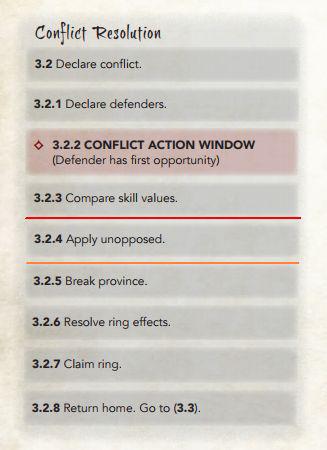I choose this for example, but the real question is when exactly you play the reactions that says "after you win (or loose) a conflict..."
Reading the learn to play it seems to be after booth players passed their actions and the count of skills were made. So is this correct? In this case you can play spies at court before display of power, the first player resolve his reaction first?
